Posted on April 30th, 2010 by ASEE
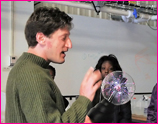
The U.S. Department of Energy’s Princeton Plasma Physics Laboratory (PPPL) will host an Open House on Saturday, May 1, from 9 a.m. to 4 p.m. LCome to the hottest place in New Jerseyand find out about fusion energy — the process that powers the sun and other stars. Location: Princeton Plasma Physics Laboratory, Princeton University, James Forrestal Campus, Plainsboro, New Jersey. Cost: Free. Photo IDs required of visitors 18 and older.
Read More
Filed under: For Teachers, Grades 6-8, Grades 9-12, Grades K-5, K-12 Outreach Programs | Comments Off on Open House: Plasma Physics Day, Princeton, NJ. May 1, 2010
Tags: National Laboratories, Plasma Physics, Programs for Families, Programs for Teachers, Weekend programs
Posted on April 29th, 2010 by ASEE
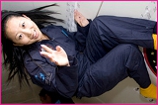 The Northrop Grumman Foundation Weightless Flights of Discovery program provides public Middle School teachers of STEM subjects the opportunity to join teacher workshops and parabolic flights in locations throughout the country.Teachers learn about the physics of weightlessness, design microgravity experiments, and experience a weightless flight. Teachers then use their videotaped flight experience and the results of the experiments to help shape math, science, technology or engineering curricula at their home schools.
The Northrop Grumman Foundation Weightless Flights of Discovery program provides public Middle School teachers of STEM subjects the opportunity to join teacher workshops and parabolic flights in locations throughout the country.Teachers learn about the physics of weightlessness, design microgravity experiments, and experience a weightless flight. Teachers then use their videotaped flight experience and the results of the experiments to help shape math, science, technology or engineering curricula at their home schools.
Read More
Filed under: For Teachers, K-12 Outreach Programs | 1 Comment »
Tags: Aerospace, Corporations, Programs for Teachers
Posted on April 26th, 2010 by Jaimie Schock
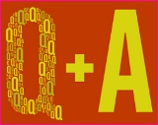 Interact with Smithsonian scientists, curators, and educators in this free, two-day online conference April 28-29. In live presentations, demonstrations, and moderated forums, teachers, students, and anyone interested can use critical thinking skills to address problems in science, history, arts, and culture.
Interact with Smithsonian scientists, curators, and educators in this free, two-day online conference April 28-29. In live presentations, demonstrations, and moderated forums, teachers, students, and anyone interested can use critical thinking skills to address problems in science, history, arts, and culture.
Read More
Filed under: Web Resources | Comments Off on Event: Smithsonian Two-Day Online Conference
Tags: Conference, Conferences and Meetings, Internet, Internet Resources, Smithsonian, Student Conference, Web Resources
Posted on April 26th, 2010 by ASEE
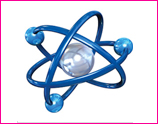 An all-day seminar, Science Writing: From Eureka Moment to Digital Publishing, will be held at the Smithsonian Institution, May 15, 2010. From cells to stars, from evolution to swine flu, writing about diverse and complex scientific topics is an engaging, challenging endeavor requiring special skills. The seminar presenters discuss how to find ideas, develop essential skills, and thrive in the digital age. Cost: $85 Smithsonian members, $75 senior members, $120, general public.
An all-day seminar, Science Writing: From Eureka Moment to Digital Publishing, will be held at the Smithsonian Institution, May 15, 2010. From cells to stars, from evolution to swine flu, writing about diverse and complex scientific topics is an engaging, challenging endeavor requiring special skills. The seminar presenters discuss how to find ideas, develop essential skills, and thrive in the digital age. Cost: $85 Smithsonian members, $75 senior members, $120, general public.
Read More
Filed under: For Teachers, K-12 Outreach Programs | Comments Off on Seminar: Learning about Science Writing. May 15, 2010
Tags: Scientific Writing, Seminar, Smith
Posted on April 26th, 2010 by ASEE
 The Force & Motion sequence of City Technology, The City College of New York (CCNY), consists of four curriculum units that integrate math science, engineering and literacy across the elementary grades. For each, teachers can find lesson plans, down-loadable curriculum guides, and standards alignments. For more activities and lessons, see City Technology’s projects page for educators.
The Force & Motion sequence of City Technology, The City College of New York (CCNY), consists of four curriculum units that integrate math science, engineering and literacy across the elementary grades. For each, teachers can find lesson plans, down-loadable curriculum guides, and standards alignments. For more activities and lessons, see City Technology’s projects page for educators.
Read More
Filed under: Web Resources | Comments Off on Website: Engineering for Young Children
Tags: Grades K-5, Mathematics, Mechanical engineering, STEM subjects, Web Resources
Posted on April 26th, 2010 by ASEE
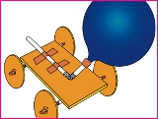 What more fun way to demonstrate Newton’s Third Law – every action has an equal and opposite reaction – than through a balloon-powered rocket car? In this lesson from NASA Quest, students grades 4-8 construct their cars from simple materials, test them along a measured track, then work to modify them for improved performance.
What more fun way to demonstrate Newton’s Third Law – every action has an equal and opposite reaction – than through a balloon-powered rocket car? In this lesson from NASA Quest, students grades 4-8 construct their cars from simple materials, test them along a measured track, then work to modify them for improved performance.
Read More
Filed under: Class Activities, Grades 6-8, Grades K-5 | 3 Comments »
Tags: NASA
Posted on April 26th, 2010 by Jaimie Schock
 Can intensive teacher-training courses help turn inadequate math teachers into classroom stars? Apparently not — at least not immediately. That’s the conclusion of a new Department of Education report, which found that intensive, state-of-the-art efforts to boost teachers’ skills don’t seem to lead to significant improvements in student achievement.
Can intensive teacher-training courses help turn inadequate math teachers into classroom stars? Apparently not — at least not immediately. That’s the conclusion of a new Department of Education report, which found that intensive, state-of-the-art efforts to boost teachers’ skills don’t seem to lead to significant improvements in student achievement.
Read More
Filed under: K-12 Education News | Comments Off on No Boost for Poor Teaching
Tags: Research on Learning, Teacher Training, U. S. Department of Education
Posted on April 26th, 2010 by Jaimie Schock
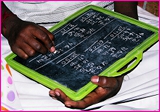 The set of common academic standards most states are expected to adopt this year got strong reviews from veteran K-12 teachers in Baltimore. The teachers — who include former Teachers of the Year — read and rated the draft common core standards and generally gave them thumbs up.
The set of common academic standards most states are expected to adopt this year got strong reviews from veteran K-12 teachers in Baltimore. The teachers — who include former Teachers of the Year — read and rated the draft common core standards and generally gave them thumbs up.
Read More
Filed under: K-12 Education News | Comments Off on Teachers OK New Standards
Tags: Education Policy, Public Policy
Posted on April 26th, 2010 by Jaimie Schock
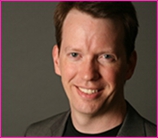 Physicist Sean Carroll says high school physics classes place too much emphasis on dry puzzle-solving and pulleys. “One of the tragedies of our educational system is that we’ve taken this incredibly interesting subject — how the universe works — and made it boring,” he says.
Physicist Sean Carroll says high school physics classes place too much emphasis on dry puzzle-solving and pulleys. “One of the tragedies of our educational system is that we’ve taken this incredibly interesting subject — how the universe works — and made it boring,” he says.
Read More
Filed under: K-12 Education News | Comments Off on Not so Boring, Please!
Tags: Education Policy, Physics










 The Northrop Grumman Foundation Weightless Flights of Discovery program provides public Middle School teachers of STEM subjects the opportunity to join teacher workshops and parabolic flights in locations throughout the country.Teachers learn about the physics of weightlessness, design microgravity experiments, and experience a weightless flight. Teachers then use their videotaped flight experience and the results of the experiments to help shape math, science, technology or engineering curricula at their home schools.
The Northrop Grumman Foundation Weightless Flights of Discovery program provides public Middle School teachers of STEM subjects the opportunity to join teacher workshops and parabolic flights in locations throughout the country.Teachers learn about the physics of weightlessness, design microgravity experiments, and experience a weightless flight. Teachers then use their videotaped flight experience and the results of the experiments to help shape math, science, technology or engineering curricula at their home schools. Interact with Smithsonian scientists, curators, and educators in this free, two-day online conference April 28-29. In live presentations, demonstrations, and moderated forums, teachers, students, and anyone interested can use critical thinking skills to address problems in science, history, arts, and culture.
Interact with Smithsonian scientists, curators, and educators in this free, two-day online conference April 28-29. In live presentations, demonstrations, and moderated forums, teachers, students, and anyone interested can use critical thinking skills to address problems in science, history, arts, and culture. An all-day seminar, Science Writing: From Eureka Moment to Digital Publishing, will be held at the Smithsonian Institution, May 15, 2010. From cells to stars, from evolution to swine flu, writing about diverse and complex scientific topics is an engaging, challenging endeavor requiring special skills. The seminar presenters discuss how to find ideas, develop essential skills, and thrive in the digital age. Cost: $85 Smithsonian members, $75 senior members, $120, general public.
An all-day seminar, Science Writing: From Eureka Moment to Digital Publishing, will be held at the Smithsonian Institution, May 15, 2010. From cells to stars, from evolution to swine flu, writing about diverse and complex scientific topics is an engaging, challenging endeavor requiring special skills. The seminar presenters discuss how to find ideas, develop essential skills, and thrive in the digital age. Cost: $85 Smithsonian members, $75 senior members, $120, general public.
 What more fun way to demonstrate Newton’s Third Law – every action has an equal and opposite reaction – than through a balloon-powered rocket car? In this lesson from NASA Quest, students grades 4-8 construct their cars from simple materials, test them along a measured track, then work to modify them for improved performance.
What more fun way to demonstrate Newton’s Third Law – every action has an equal and opposite reaction – than through a balloon-powered rocket car? In this lesson from NASA Quest, students grades 4-8 construct their cars from simple materials, test them along a measured track, then work to modify them for improved performance. Can intensive teacher-training courses help turn inadequate math teachers into classroom stars? Apparently not — at least not immediately. That’s the conclusion of a new Department of Education report, which found that intensive, state-of-the-art efforts to boost teachers’ skills don’t seem to lead to significant improvements in student achievement.
Can intensive teacher-training courses help turn inadequate math teachers into classroom stars? Apparently not — at least not immediately. That’s the conclusion of a new Department of Education report, which found that intensive, state-of-the-art efforts to boost teachers’ skills don’t seem to lead to significant improvements in student achievement. The set of common academic standards most states are expected to adopt this year got strong reviews from veteran K-12 teachers in Baltimore. The teachers — who include former Teachers of the Year — read and rated the draft common core standards and generally gave them thumbs up.
The set of common academic standards most states are expected to adopt this year got strong reviews from veteran K-12 teachers in Baltimore. The teachers — who include former Teachers of the Year — read and rated the draft common core standards and generally gave them thumbs up.  Physicist Sean Carroll says high school physics classes place too much emphasis on dry puzzle-solving and pulleys. “One of the tragedies of our educational system is that we’ve taken this incredibly interesting subject — how the universe works — and made it boring,” he says.
Physicist Sean Carroll says high school physics classes place too much emphasis on dry puzzle-solving and pulleys. “One of the tragedies of our educational system is that we’ve taken this incredibly interesting subject — how the universe works — and made it boring,” he says.